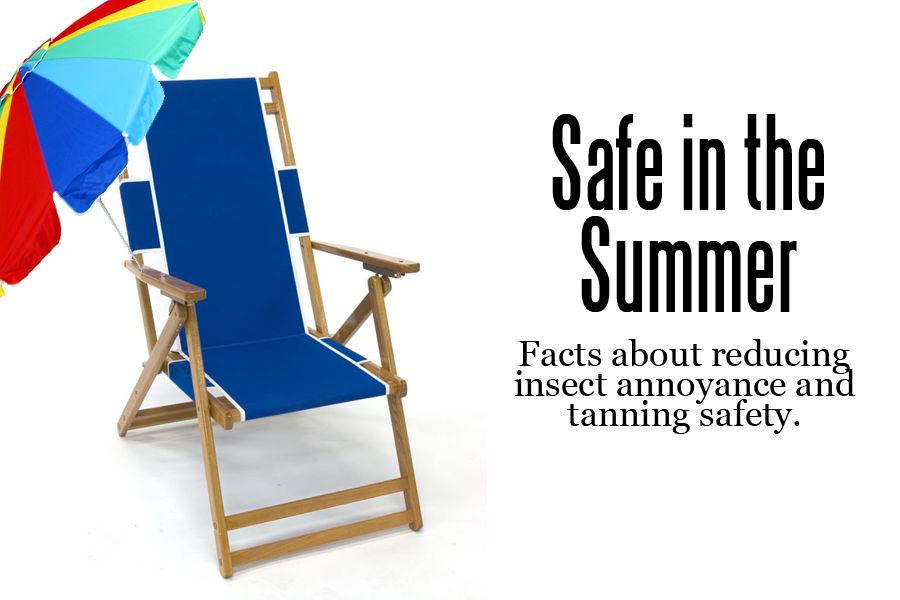In the fall people worry about the flu and hay fever. In the winter there are worries of getting colds and more of the flu. In the spring allergies begin to make an appearance, and, in the summer, people worry about sunburns and insects.
Sun protection and insect bites, such as mosquitoes with West Nile, drive people to try everything in order to prevent themselves, as well as their families, from being harmed by one of the two, such as high potent sunscreen and mosquito repellant. Sun protection doesn’t just apply to avoiding sunburns, but also to excessive tanning.
“Hawaiian Falls has a lot of bees and I have a phobia of bees,” drill team coordinator Brooke Parlin said. “My two year old has many allergies too, but we aren’t aware of a bee allergy yet, so we’d like to not find out.”
Insect bites, such as mosquito bites and bee stings, are some of the most common sources of infection and annoyance. In 2012 a reported 1,868 cases of West Nile Virus were recorded in Texas, according to the Texas Department of State Health Services. Parlin wishes to avoid these encounters, so at her home she has planted citronella plants, a plant that keeps mosquitoes away, in her yard as an experiment. Parlin’s husband also doesn’t allow standing water around the house.
“My favorite product is Avon bug repellent that’s also a sunscreen,” Parlin said. “It’s my go to product and I usually hose [my kids] down before going anywhere.”
Sun protection doesn’t just apply to avoiding sunburns, but also excessive tanning. Sun tanning can also be a hazard that can cause discomfort and, in the long term, disease. An estimated 9,480 people will die of melanoma in 2013, according to the Skin Cancer Foundation. To prevent overexposure of sun, stay out of the midday sun (from 10 in the morning to 4 in the afternoon), which is the strongest sunlight.
“Skin cancer isn’t worth [tanning],” freshman Alanna Zaskoda said. “It’s better to take precautions.”
If you can’t avoid being in the sun for long periods of time, use a sunscreen with a high SPF to help protect your skin while you are in the sun. Use lip balm or cream that has SPF of 15 or higher to protect your lips from getting sunburned or developing cold sores, according to WebMD.











